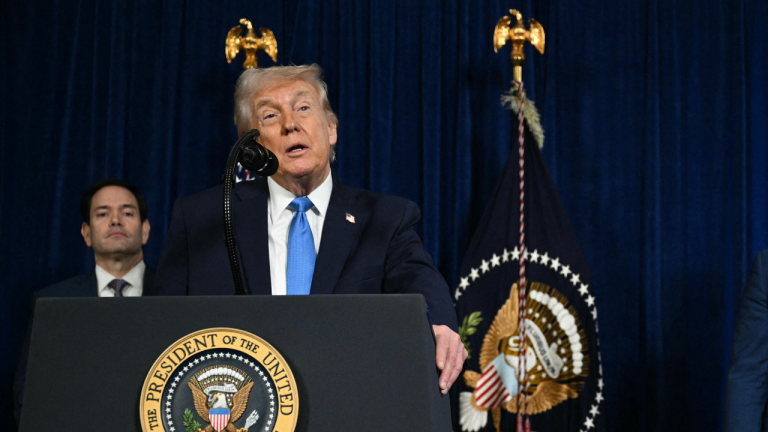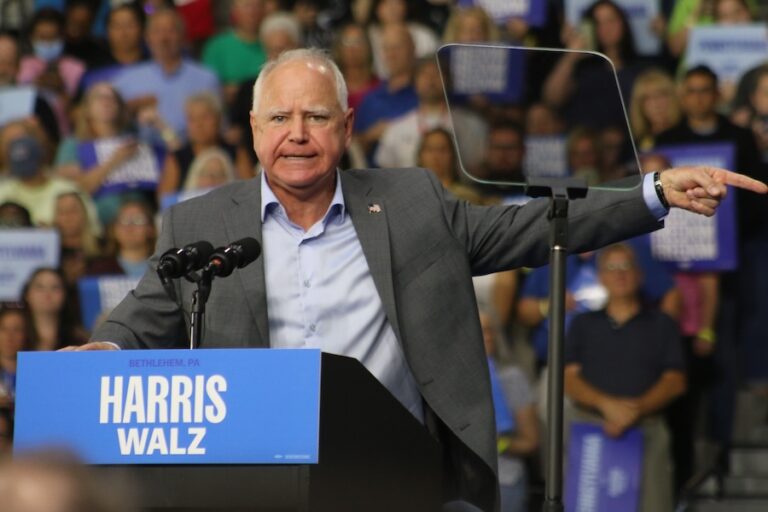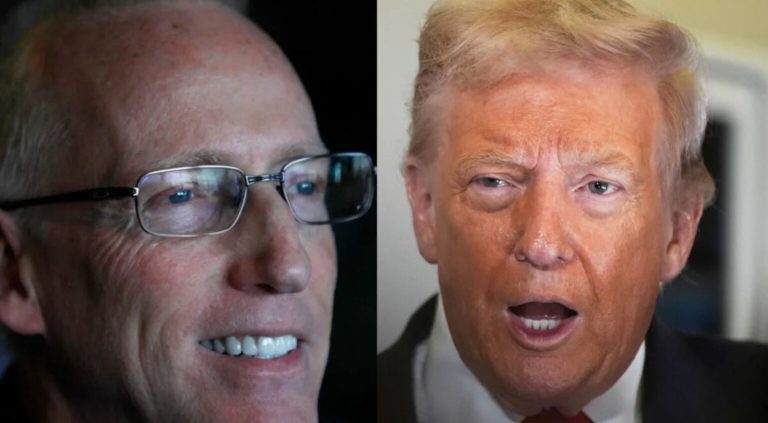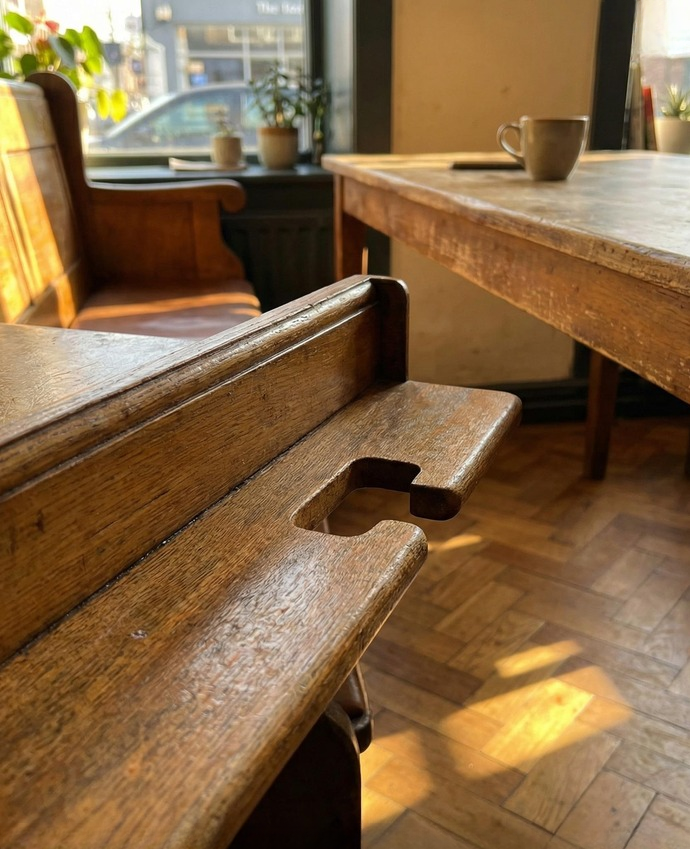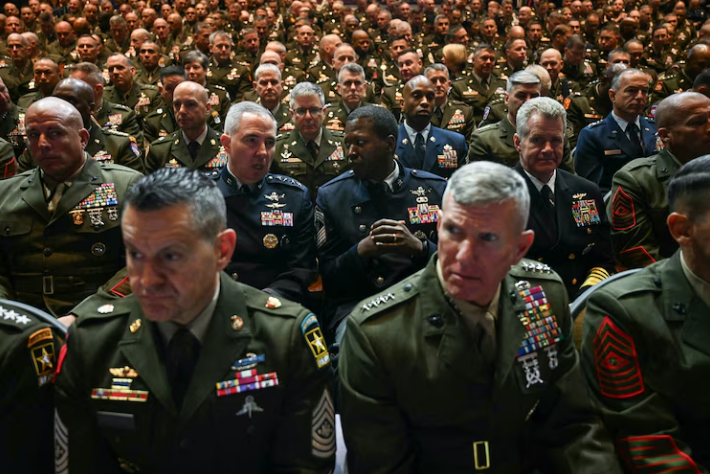
During a recent address to military leaders, President Donald Trump proposed a controversial approach to training U.S. military forces. He suggested using cities plagued by violence and crime, predominantly run by Democratic leadership, as training grounds. “It seems like cities run by radical left Democrats. What they have done to San Francisco, Chicago, New York, Los Angeles, is very unsafe,” he remarked. This statement highlights Trump’s view of these urban areas as battlegrounds in a deeper struggle, one he describes as “a war from within.”
Trump spoke at Quantico, Virginia, where several top generals and admirals gathered. He emphasized the importance of protecting the homeland, calling it the military’s “most important priority.” His assertion suggests a pivot in the military’s focus, indicating that it may soon engage more actively in urban environments. “They’re very unsafe places, and we’re going to straighten them out one by one,” Trump declared, asserting that federal interventions could be necessary in cities like Chicago and New York City.
In his speech, Trump specifically referenced Chicago, a city that has faced its share of violence and unrest over the years. “I told Pete, we should use some of these dangerous cities as training grounds for our military,” he stated, pointing towards an immediate deployment in Chicago. He criticized local leadership as inadequate, describing the city as “a big city with an incompetent governor.” His comments reflect a broader concern surrounding crime and governance in these urban areas.
The call to use American cities as military training grounds is certainly provocative. Trump likened the lawlessness in these cities to a foreign enemy, noting the challenge posed by the lack of uniforms among the criminals. “No different than a foreign enemy, but more difficult in many ways because they don’t wear uniforms,” he explained. This analogy forces a reevaluation of how domestic issues are addressed, framing the increase in crime as a dire threat to national security.
As the speech continued, Trump expanded on his plan for the National Guard and military involvement in urban settings. His administration requested the deployment of 100 military troops to Illinois specifically to support Immigration and Customs Enforcement (ICE) operations. The governor of Illinois, however, expressed concern over this decision. The federal government’s engagement in local matters, particularly when it comes to law enforcement, raises complex questions about authority and the balance of power.
Also Read ; NEW: Trump Admin Puts Tim Walz In Its Crosshairs
The backdrop of rising tensions in these cities—such as protests involving groups like ANTIFA—has prompted serious discourse about how federal forces should respond. Reports have indicated an increase in militant activities near ICE facilities, where some protestors have resorted to violent rhetoric. The situation has escalated discussions not only about law enforcement but also about the military’s role in civil order.
Trump’s framing of the issues across the nation serves to galvanize support among those who feel affected by crime and disorder in their communities. By declaring that “this is going to be a major part” of the military’s mission, Trump aligns himself with constituents who seek a stronger hand in addressing rising crime rates, particularly in cities under Democratic control.
In summary, President Trump’s recent remarks to military leaders signal a significant shift in how the U.S. might engage with domestic challenges. His suggestion to utilize high-crime cities for military training not only emphasizes the urgency of addressing urban violence but also serves as a rallying cry for those who advocate for a more assertive federal response to crime. The potential implications of such a strategy will undoubtedly be closely watched as the dialogue surrounding law enforcement and public safety continues to evolve.
